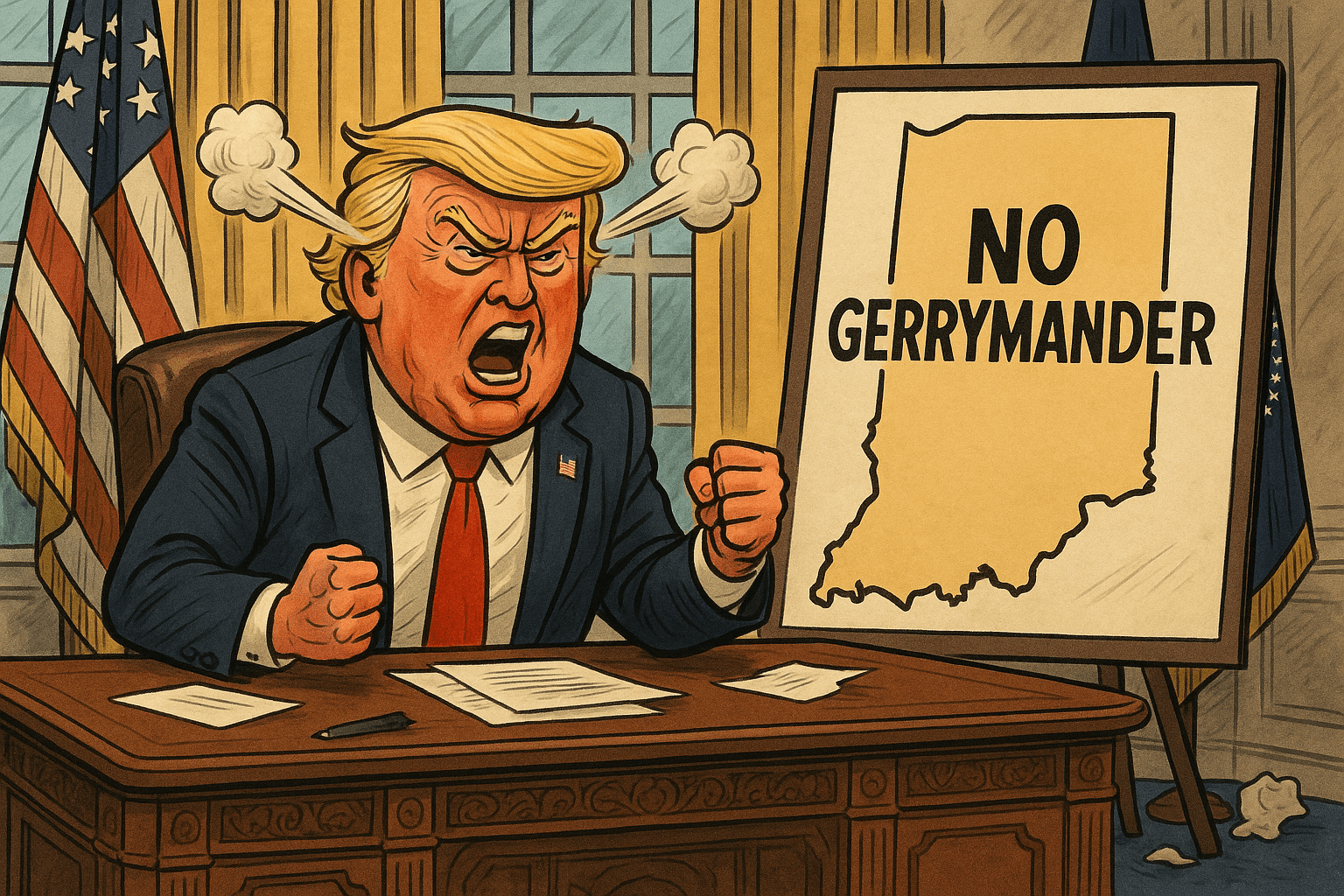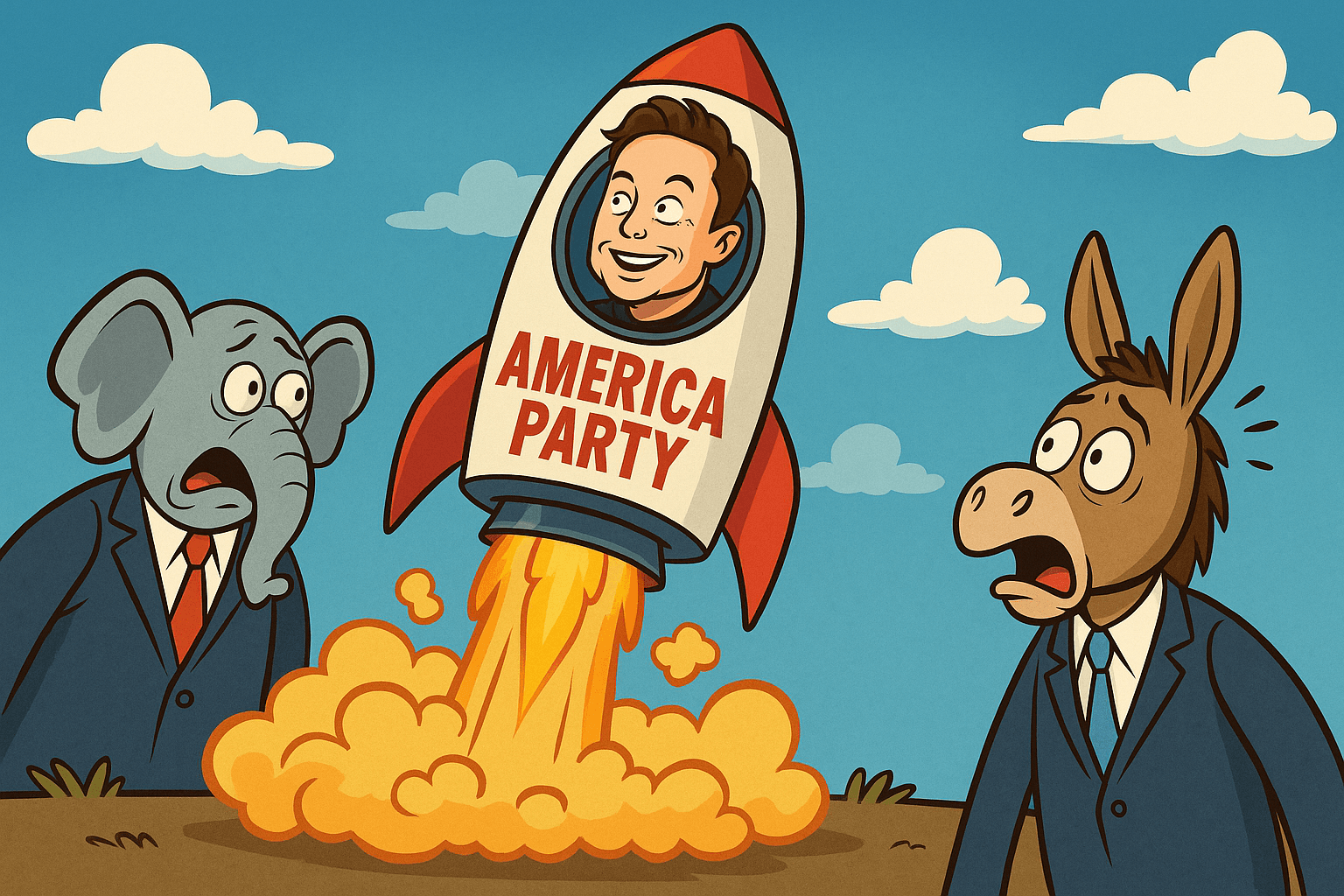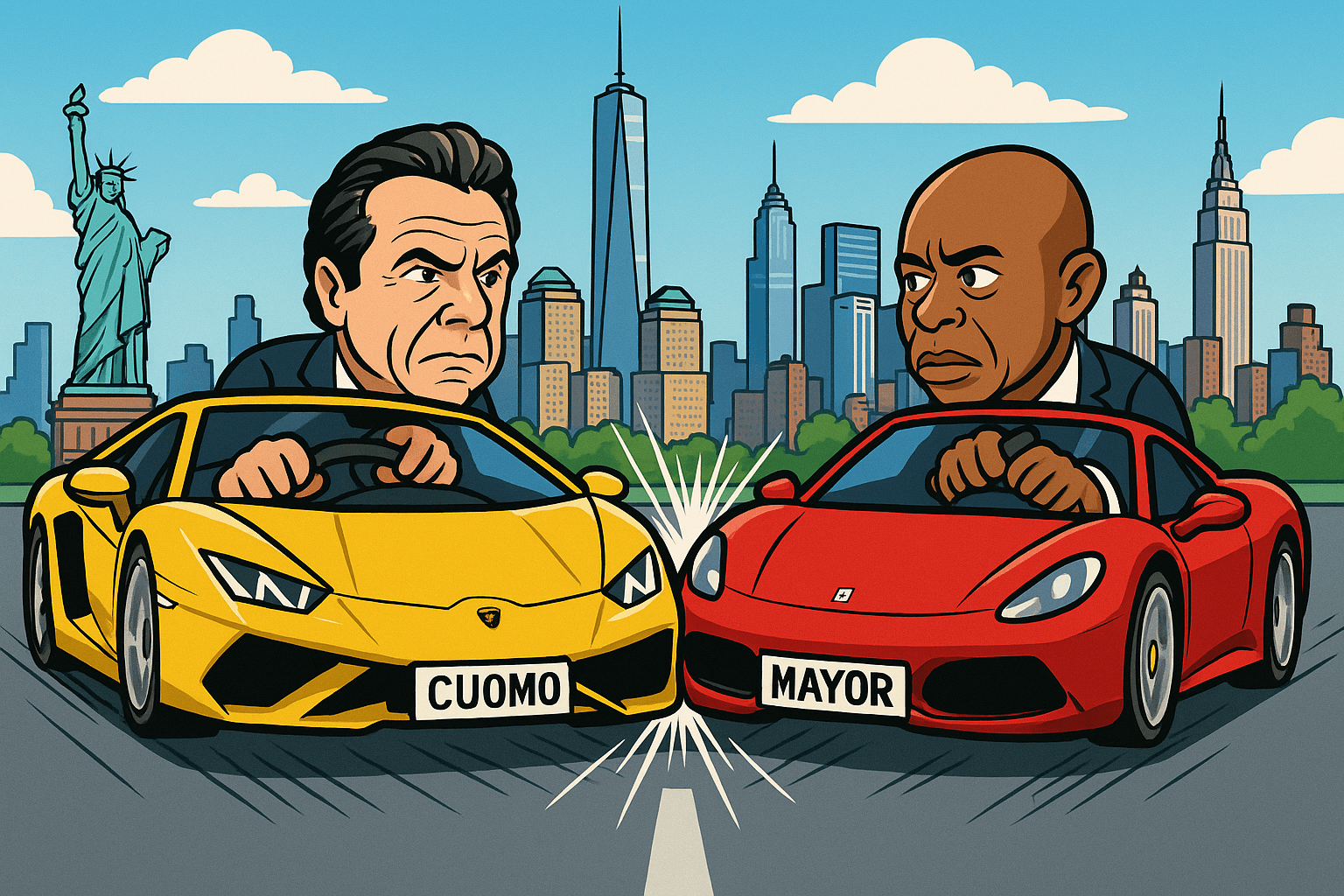Imperiling Democracy: The Two-Party System is Automating Voter Choice

Photo Credit: Kelly Sikkema on Unsplash
As critical thinking skills become increasingly important in the era of artificial intelligence, our two-party political system is imperiling both democracy and the American workforce by automating voter choice, decreasing the value of human input and serving as a Chat GPT for everyday political conversations.
According to the World Economic Forum, “analytical thinking, creativity, and flexibility will be among the most sought-after skills” by 2025.” A Forbes article proposes that “employees who lack basic critical thinking skills may be prone to making decisions based on assumptions, biases, or incomplete information.” Our political experiences undermine the development of such skills. The problem is glaring. A common campaign sign in neighborhoods across the country simply says, “Vote Row A.”
Author David Epstein, in his book Range, proposes that “In a truly open-world problem, Artificial Intelligence has been disastrous.” Still others have called it a “threat to humanity."
Americans' views on AI are split, but the ability of AI to access and process more data than a human ever could has unlocked many innovations in combination with human contribution. In politics, where all problems are open – the vast possibilities for solutions have tremendous impact on the people and communities of a nation; yet, our two-party system has rendered intelligent and independent thinking by voters useless.
Informed voters, aware of the subtleties of issues and even armed with a desire for innovative problem solving, are no better equipped to elect good leaders than the uninformed voter due to largely binary ballots. If, as research suggests, the human ability to “integrate broadly” (Epstein, p 29) is the exact complement required for the success of a machine, then, viewed as a political machine, the two-party system is a true threat to our nation.
Ronald Reagan stated in 1989 that “the communications revolution will be the greatest force for the advancement of human freedom the world has ever seen.” He could not have predicted the impact on our political culture which enables this revolution to benefit machines that are fueled by the data collected by our online interactions.
The two-party machine, like artificial intelligence, can collect far more data than independent or third-party candidates and benefits from echo chambers that intensify extreme partisanship. The “freedom” we gained through such a communications revolution has led to a virtual battleground fueled by selective data and analyses provided by each major party.
The mere use of search engines leads to a decrease in critical thinking skills, as well as an increased dependence on such systems for information. Similarly, dependence on a two-party system undermines the role of the voter in our representative democracy.
A binary political marketplace controls nearly 100% of the solutions and candidates while hardly aligned with a consumer base of which less than a third affiliate with either major party. The consequence is a decrease in need for voters to think critically about their options and has, ultimately, rendered critical thinking useless.
The reduction of competition and the institutionalized obstacles to any challengers to the binary market have reduced the role of voters to bots, programmed to do as we have been told to do on Election Day.
The strength of our democracy depends on awareness, and action, to open the marketplace and challenge the automation of our voting input. Perhaps viewing it through the lens of critical thinking skills, more leaders will consider the ramifications.
The only real tool in voters' hands is the primary system; however, parties have corrupted this as well by discouraging primary challenges to incumbents and excluding, in most parts of the country, the largest constituency in the U.S. – independent and third-party voters.
Independent and third-party candidates also suffer, largely ignored by even local media, with little chance of educating voters about their policies. Voters have been programmed to fear candidates outside the system -- ensuring that they will, for the most part, fall in line on Election Day.
The two-party system writes our political dialogues, carefully selects data and provides predictive analyses through their communications arms to eliminate critical thinking among individual voters.
Dean Phillip’s challenge to President Biden for the 2024 nomination was mounted in response to data – a CNN poll showing a large majority of voters want another choice. The poll was not an outlier. Another indicates that just 25% of the same voters want President Biden to run again. But the Democratic Party focused instead on data that “proves” that incumbent challenges fail.
Political columnist Jonathan Chait proposes that the party’s analysis is “far from certain.” Whether the party is acting wisely or recklessly, Phillips' claim that Biden’s de facto nomination is a “threat to democracy” reflects the reality that our current system impairs voters' cognitive engagement, and the consequence may well be the erosion of our democratic system.
Ultimately, dominating the hardly competitive binary political marketplace by disabling critical thinking is irresponsible. The world has changed and as “routine mental tasks that historically made up the bulk of people’s workloads are increasingly automated, critical thinking is key for anyone who wants to continue adding value beyond what can be handled by machine learning.” 78% of business leaders surveyed said that critical thinking/analytic reasoning is the most important skill they are seeking in employees.
Critical thinking is necessary for a productive, adaptable and engaged culture and our two-party system discourages cognitive growth.
Without acknowledging this disconnect between intentional dumbing down of voters and our need for a smarter population, we will continue to fail to elect transformative, innovative politicians while simultaneously impeding the growth of a workforce capable of modern skills. This two-party system has effectively automated the act of voting.
Democracy is at risk, and so too is our national ability to remain at the forefront of innovation and global leadership. Our two-party system is failing America.







